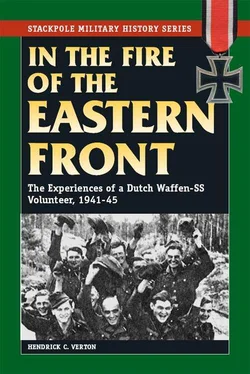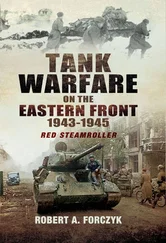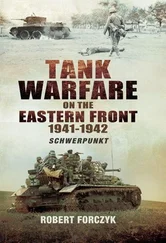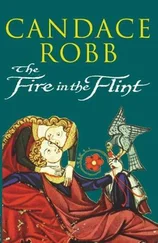The former chairman of the FDP party, a pariiamentarian Dr Erich Mende, recipient of the Knight’s Cross, and a former major, declared, “We were totally dependent on our brothers-in-arms for our lives. We did not ask, “are you Catholic?” or “are you Evangelist, Wehrmacht or the Waffen SS?” We were dependent, as a Wehrmacht division, for example, on the Waffen SS holding the Caen-Falaise road.” Support and understanding for our troops, came from various directions. Dr Kurt Schumacher, the chairman of the post-war SPD, the German Labour Party, and also Federal-Chancellor Konrad Adenauer, who referred to the Waffen SS at the CDU Conference, in Hannover in 1949, as “Soldiers like every other”.
In the following years, as World War II started to belong to the past, and the war generation wandered into old age, they became ‘interested parties’. It is forgotten how closely-knit the German population were at one time. According to old tradition, one placed a burning candle on the windowsill, to guide the soldier-lad home, and to keep alive the memory of those, still far away, many in foreign POW camps.
The Waffen SS slowly belonged to the past, and slowly, speeches of regret started to take place, from parties and from the politically prominent. But “out of sight, out of mind!” is not the code that we of the Waffen SS live by. Our code, “Our loyalty is our honour,” may be scoffed at by some, but we still live by it today. It is a duty, the duty of unending work to locate our missing. Then we work to give him or them a worthy grave. There are still 1.4 million Germans missing (1995 statistics). We try to give social help where needed. An example is the organisation Paul Hausser Social Work. Up to 1992 it could boast of collecting 4 million marks for social help.
Every land honours their dead. Until recently, everywhere except Germany. The American soldiers returning home to the States had the red carpet rolled out for them. We were de-nazified, the Wehrmacht and foreign ‘volunteers’ too. Old soldiers meet and shake hands over the graves, those from the East and those from the West, in Normandy and recently in Russia. A front-line soldier shares the experiences of others, and each brings respect to the other. They are all eyewitnesses who did their duty. This only applies outside Germany.
Until recently the state did not honour their dead. Only outside Germany did one find a wreath of remembrance on the grave of a German soldier, ‘unknown’ or not. Until recently, our remembrance services were ringed with police and protestors. We are reminded “to remember not to forget”, but can also find upon our arrival, that our memorial service has been cancelled. A comment from a former French President of a veterans’ organisation was, “A land which ignores its own history, which lies about its past, staggers thereafter, without orientation”.
Post-war meetings with military personages were, for me, a highlight. It was not possible during the war, as there was no time or possibility, since, for those of our rank, such men of high rank were out of reach. Now they were no longer military personages, but were free to voice an opinion and share their experiences with us, their men.
One such was ‘Papa Hausser’, or to give him his correct title, Commander-in-Chief of the Armed Forces and highly decorated General, Paul Hausser. His name will go down, not only in German history books, but also those of the Second World War. He really was a father to his soldiers, they were ‘his boys’. He was the one who sometimes contradicted Hitler when necessary. He visited us in Bonn one time, where he showed not only his humour but his humility as well. One of us in speaking to him addressed him with his full military title. He didn’t want that. “But General I cannot call you Paul,” as was suggested. “Well, call me Paulchen then!” which is an endearment, for someone of whom you are very fond. We met again Stuttgart in 1970, two years before he died at the age of 92.
Dressed in a light coat, similar to the one that he had worn in Russia, the commander of the ‘Wiking’, Felix Steiner visited us in Bonn. Just like Napoleon, he spoke to his men, one after the other. As a friendly gesture he spoke as if he knew exactly when and where in battle he had seen them before.
Then there was Sepp Dietrich. This old war-horse, this bluff fire-eater belonged to a fraternity all of his own. His strong but casual personality, his laid-back manner, I found just the same in meeting him again. I met Major-General Kurt Meyer, and General Herbert Gilles, who was a sensitive and intelligent man. Despite their former high ranks, both men were humble and approachable. Arrogance was never to be seen.
It was in 1963 that Brigitte and I were in Madrid, for a week, as guests of the legendary Otto Skorzeny. We journeyed together with a married couple who were the book publishers who had published his book, “Live Dangerously”. A most impressive man, Skorzeny possessed the typical charm of the Viennese. In 1943, he was to become a worldwide legend for freeing the Italian Duce Mussolini, from under the noses of the Italians, without shedding a drop of blood. He had read both books from George Haas and wanted to meet me. Nearly every day, and everywhere we went in Madrid, we could see and feel the respect that the Spaniards had for Otto Skorzeny. He was always referred to as ‘Senor Colonel’, and our drinks were always ‘on the house’.
In the 1970s, because our daughter Henrike worked for the German airline Lufthansa, we took advantage of her ‘personal percentage’ for flights. We made a trip to the Eastern-bloc, visiting Moscow, Leningrad, and my wife’s birthplace, Breslau.
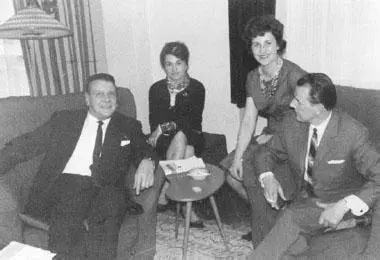
Brigitte and Hendrik Verton (right) in Madrid, 1963, as guests of the legendary Otto Skorzeny.
Our present and future lives lay in Bad Godesberg, where we felt and still feel 100% at home. It was where the decisions were made, and where the politicians argued over the atom bomb, over re-armament and over Eastern agreements. This ‘dwarf seat of parliament, this post-war capital was to be treated to a good dose of sarcasm from an American reporter as, “Half as large and twice as dead as our Central Cemetery in Chicago”.
In those days Chancellor Adenauer used the small river ferry daily, to go to his office from his house in Rhondorf. He travelled without a government-paid limousine, and also without bodyguards. Both would be unthinkable today. He would doff his hat in respect to his fellow citizens, and to those he knew and met on his way. That is all a thing of the past.
There is an old Russian saying, “We come to treasure the things of the past”. Perhaps if we live long enough, perhaps if we have the urgent need write about it, and if we find the time and leisure to relive our experiences, we may. Perhaps we will, when the shock and the hope, the suffering and the yearning for happiness, and when, in remembrance, all becomes ‘a lighter shade of pale’.
Research into the underlying reasons of our personal fates is also very necessary, in order to be able to correct what is falsely claimed today. It is the duty of those living to protect the honour of those comrades who gave their lives.
Sacrifice was the fate of the ‘volunteers’. The harvest of sowing their anti-communist seeds was defamation, and persecution was the tragedy of their honour. There will always be ‘volunteers’, wherever a future of freedom needs them. In the past they were called fantasists, sentimentalists, pretenders, party-followers and even country-bumpkins and of whom history has disapproved. Idealists should constantly protect themselves against the orthodox.
Читать дальше
